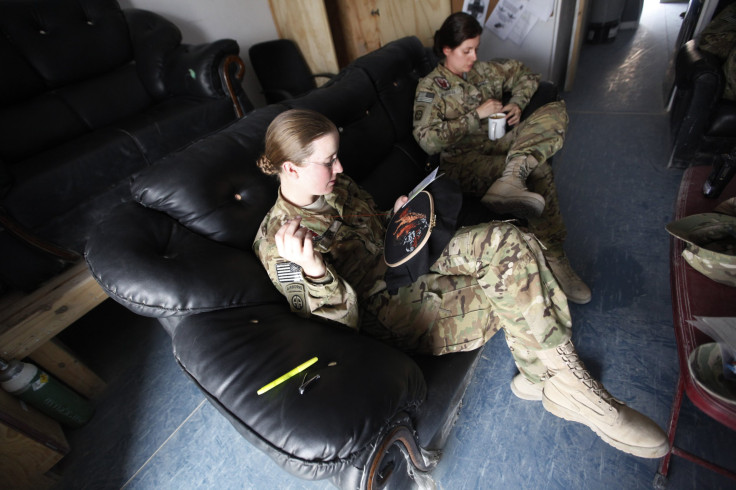US Military Women Could Wait Two Years Before Getting Combat Roles: Report

It will take more than two years before women move into U.S. military combat jobs, despite being eligible from January 2016, according to a report released Wednesday by the Government Accountability Office (GAO). The report contends that female recruits will need to be "recruited, accessed, trained, tested and assigned" before they can apply for any of the 245,000 jobs that they are ineligible from taking now.
The report criticized the Pentagon for not developing long-term plans to ensure that women are integrated into combat roles correctly in the years after the ban is lifted.
"Without ongoing monitoring of the services' and [Special Operations Command's] implementation progress in integrating previously closed positions and occupations, it will be difficult for [the Department of Defense] to have visibility over the extent to which the services are overcoming potential obstacles to integration," the report stated.
While women will be free to apply and enroll into all combat roles under the current rules, it’s thought that the Department of Defense will make formal requests to continue to ensure that some roles are exclusively for men, such as infantry roles in the U.S. Marines and Army. Defense Secretary Ash Carter will have to approve any exemptions.
Listen to @GayleLemmon discuss #AshleysWar & women in combat on @OSTtalk: http://t.co/lLoArmEWoR pic.twitter.com/hvHMQ0gV8u
— CFR (@CFR_org) July 28, 2015In response to the report, the Pentagon has agreed that it will keep an eye on the transition after 2016. "We recognize the importance of monitoring the long-term implementation progress of expanding combat service opportunities for women," wrote Deputy Assistant Secretary of Defense Juliet Beyler in a July 10 letter to the GAO.
Some troops have said that of the 90,000 combat positions opened up to women since former Defense Secretary Leon Pannetta set into motion the new rules over two years ago, many did not reflect the risks on the ground faced by all troops in Iraq and Afghanistan.
However, women are widely underrepresented in the flag and general officers positions. Many contend that being ineligible for combat positions has harmed their career progress, as most military leaders traditionally come from those roles.
Critics believe that women operating in smaller units, such as special operations teams, could erode the operational effectiveness because of a mix of sexual tension, gender bias and traditional chivalry.
© Copyright IBTimes 2024. All rights reserved.




















